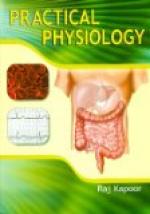Fiber (Lat. fibra, a filament). One of the tiny threads of which many parts of the body are composed.
Fibrilla. A little fiber; one of the longitudinal threads into which a striped muscular fiber can be divided.
Fibrin (Lat. fibra, a fiber). An albuminoid substance contained in the flesh of animals, and also produced by the coagulation of blood.
Flexion (Lat. flecto, to bend). The act of bending a limb, etc.
Follicle (Lat. dim. of follis, a money bag). A little pouch or depression.
Fomentation (Lat. foveo, to keep warm). The application of any warm, medicinal substance to the body, by which the vessels are relaxed.
Foramen. A hole, or aperture.
Frontal Sinus. A blind or closed cavity in the bones of the skull just over the eyebrows.
Fumigation (Lat. fumigo, to perfume a place). The use of certain fumes to counteract contagious effluvia.
Function (Lat. functio, a doing). The special duty of any organ.
Ganglion (Gr. ganglin, a knot). A knot-like swelling in a nerve; a smaller nerve center.
Gastric (Gr. gaster, stomach). Pertaining to the stomach.
Gelatine (Lat. gelo, to congeal). An animal substance which dissolves in hot water and forms a jelly on cooling. Germ (Lat. germen, a sprout, bud). Disease germ; a name applied to certain tiny bacterial organisms which have been demonstrated to be the cause of disease.
Germicide (Germ, and Lat. caedere, to kill). Any agent which has a destructive action upon living germs, especially bacteria.
Gland (Lat. glans, an acorn). An organ consisting of follicles and ducts, with numerous blood-vessels interwoven.
Glottis (Gr. glotta, the tongue). The narrow opening between the vocal cords.
Glucose. A kind of sugar found in fruits, also known as grape sugar.
Gluten. The glutinous albuminoid ingredient of cereals.
Glycogen. Literally, “producing glucose.” Animal starch found in liver, which may be changed into glucose.
Gram. Unit of metric system, 15.43 grains troy.
Groin. The lower part of the abdomen, just above each thigh.
Gustatory (Lat. gusto, gustatum, to taste). Belonging to the sense of taste.
Gymnastics (Gr. gumnaxio, to exercise). The practice of athletic exercises.
Haemoglobin (Gr. haima, blood, and Lat. globus, a globe or globule). A complex substance which forms the principal coloring constituent of the red corpuscles of the blood.
Hemispheres (Gr. hemi, half, and sphaira, a sphere). Half a sphere, the lateral halves of the cerebrum, or brain proper.
Hemorrhage (Gr. haima, blood, and hregnumi, to burst). Bleeding, or the loss of blood.
Hepatic (Gr. he#x1F27;par, the liver). Pertaining to the liver.




